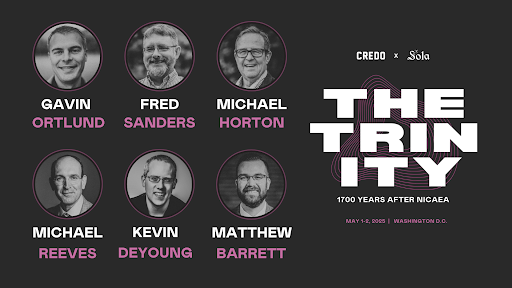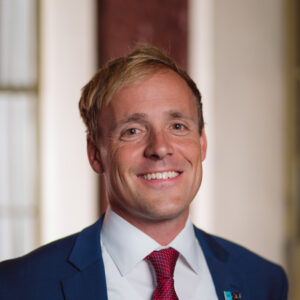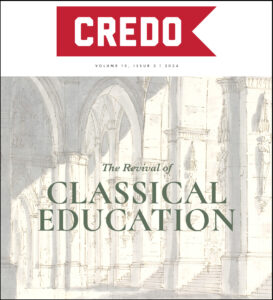About eighty years ago, Mrs. Oswald Fleming (a British mystery novelist) gave a talk on education that has become notorious. In it, she said that students should learn fewer subjects from teachers who work less; that, with hardly any exceptions, it doesn’t matter much what they study; that she was bold to assert these views despite her own limited experience of teaching because she thought it desirable for people to discuss subjects outside of their expertise; and that, since nobody would listen to her anyway, all of this hardly mattered in the first place. It is a little funny to realize that only the last of these claims has definitely been proven false. For Mrs. Oswald Fleming was better known by her maiden name, Dorothy L. Sayers, the great translator of Dante, the friend of G. K. Chesterton and C. S. Lewis and Charles Williams; and the talk in question was titled “The Lost Tools of Learning,” one of the most influential works to date on the rebirth of classical education.
When I say “rebirth,” I’m not claiming to predict the future. Some movements die in infancy. But I am talking about a fact about the present. There is an immense sense of energy in the world of classical education right now. Just in the last five years, more than two hundred and fifty classical schools have been founded in this country![1] And this isn’t just about private schools: here and there, charter schools and even conventional public schools have started offering courses like logic and Latin again. Granted, they usually do this as electives, disconnected from the pedagogy that is the real key to classical learning. But even so, changes like these at least make it possible to get a better hearing for the classical model. We have genuine reason to hope this is the beginning of a revitalization of American education.
But what is classical education? Two important traits define it: its goal, and its method for achieving that goal. Its goal is to make free, well-rounded, adult human beings—a goal it shares with a few other forms of liberal education. Its method is the Trivium, a pedagogy or educational theory that works with the natural curiosity, energy, and stages of maturity our kids have. Let’s unpack both of those things, starting with the goal.
When I was a teacher in public schools, I used to ask my students at the beginning of the year why we were here; the answer I inevitably got was “To get a better job.” That was all they had been taught to aspire to. The very idea that education was about pursuing transcendental values, about wisdom, was an inheritance they had been denied. Sometimes, an education that looks no further than employment—what is life about, if not earning a large amount of money to convert into desirable products? and for that, we only need to learn how to be useful cogs in corporate machines—sometimes this kind of education is graced with the name “utilitarian.” I prefer to call it what our ancestors called it: servile. There is an immense sense of energy in the world of classical education right now. Just in the last five years, more than two hundred and fifty classical schools have been founded in this country! Click To Tweet
The opposition between liberal and servile education goes all the way back to ancient Rome, as do the words for it. “Servile” comes from servus, meaning “slave.” Slaves were not always uneducated in the ancient world, but any education they received was strictly practical. They were considered only fit to learn about things like agriculture or accounting, subjects we study to get something out of and not for the mere pleasure of knowing about them. Slaves, after all, were a little less than human. They only needed instruction on how to do their jobs. Teaching them about transcendent values would just have been a waste of time, according to the wisdom of slavers. I for one don’t relish the fact that so much of our educational system and culture so casually accepts this idea!
But prosperous free men, called liberales in Latin, had the leisure to pursue the Good, the True, and the Beautiful. In Christian terms, I would call that what human beings are made for. That pursuit should be open to human beings just as such, not because they have a lot of money. Liberal education is learning how to be fully human. This is why it earned the name “humanism,” and why three of its subjects came to be called “the humanities. Liberal education is learning how to be fully human. This is why it earned the name “humanism,” and why three of its subjects came to be called “the humanities.” Click To Tweet
These three are the subjects of the Trivium, which is the pedagogical structure that underpins classical education. The apparatus of the classroom is not essential here; both homeschooling and institutional schooling are viable means for the structure of the Trivium. That structure is chiefly concerned with teaching students to use language well, truly, and beautifully, because language is the medium of all other learning—including mathematical and scientific learning. To phrase it in Biblical terms, in the beginning was the Word, and in him was the light that enlightens every man. This is why the three primary subjects of the Trivium are grammar, dialectic (or logic), and rhetoric. Like Mrs. Fleming, it’s worth our while to pause for a moment over what these subjects are.
Grammar is about the nuts and bolts of language, the basics of understanding others and making yourself understood. This is why Latin has been a part of classical education for so many centuries, long after it ceased to be a mother-tongue, and is usually the dividing line between classical education proper and other subtypes of liberal education (such as the Charlotte Mason method). Latin has a grammar that is simple and orderly enough that most students can grasp it simply by practice, without elaborate techniques or excessive study, yet at the same time, it is varied and rich enough to really exercise their minds. For English speakers, Latin possesses the added advantage of opening up a majority of our vocabulary, especially in some of the most challenging fields, such as medicine, law, or astrophysics.
Dialectic, or logic, takes us from how language works to how truth and language fit together. Understanding the links between ideas, discerning real deductions from fakes, working out the probable, the plausible, and the possible with their opposites: these things are the business of dialectic. This is a skill that never ceases to be timely. It used to be part of our mainstream model of education (the kind the founding fathers learned), and, without hyperbole, it’s hard not to see our decision to drop it from that mainstream model as an act of madness.
Thirdly, we have rhetoric, which our ancestors defined as the art of persuasion. This has gotten something of a bad reputation in the last few decades, thanks to propaganda and cynical politics. In reality, though, there’s nothing inherently sinister about persuasion. The truth needs to be able to persuade people, too; that’s why falsehood makes use of rhetoric; it’s one of the ways falsehood apes truth. Moreover, by learning to use rhetoric in speaking, we also learn to use rhetoric in listening. At the end of the Trivium, then, we have mastered all three of the humanities in the old sense of the term.
You may have heard that there were seven liberal arts, and may be wondering what happened to the other four (also known as the Quadrivium). These other four are arithmetic, geometry, music, and astronomy, which in contrast to the humanities were called the “sciences.” Nowadays, it sounds pretty strange to call music a science; however, what ancient and medieval education was mainly concerned with was music theory, the aspect of music that’s most easily approached in mathematical terms—for mathematics is the common thread in the Quadrivium, and the individual subjects are somewhat less important. Physics or engineering could replace astronomy without the structure of the liberal arts being damaged, for instance.
At this point, Tertullian’s famous question emerges: “What has Athens got to do with Jerusalem?” There are Christians, past and present, who are skeptical of the benefits of learning. Well, returning to the idea that liberal education is about being fully human and combining that with the doctrine that man is made in the image of God, I’d say that knowing what it means to be human and teaching it to our children is pretty important! Wasn’t St. Paul one of the most educated men of the ancient world? And, after all, what does the Gospel say? “Seek ye first the kingdom and all these things will lose interest for you”? No: “Seek ye first the kingdom of God and his righteousness, and all these things shall be added unto you.” Or, to quote from Paul, “I have resolved to know nothing except Jesus Christ and him crucified,” but at the same time, “Christ is all and is in all.”
Moreover, if we condescend to think about the practical side of things, the advantages of a classical education are remarkable. Understanding language in itself cuts down the difficulty of every other subject by at least half. It’s of special value in studying theology, which for many centuries was written chiefly in Latin. And, of course, learning languages is a priceless benefit for anyone who wants to drink deeply from Scripture, which was written in Hebrew, Aramaic, and Greek. The Holy Ghost can grant insight to anyone he wishes, as the Lord and Giver of the gift of tongues, but that is no reason to neglect our own efforts about this subject, any more than his being the Lord and Giver of the gift of life is a reason not to feed ourselves.
I hope that with the surge in popularity this kind of education has seen in America, we have recovered “the lost tools of learning” and that we never again throw them thoughtlessly away. I think there is good reason to hope for that and that it will do us good. I hope that the opponents of classical education in this country will learn what it really is and learn to love it, for “the light shineth in darkness, and the darkness hath not understood it.”
Notes:
[1]Arcadia Education, Market Analysis of US Classical Education in Grades PK-12, Feb. 22, 2024.
Photo Credit: Claudio



